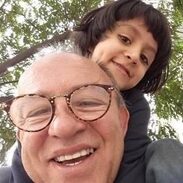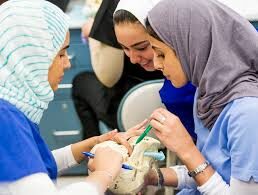 It is said that education and learning opens new doors to progress; my life to date bears witness to this truth. Born and raised in Ecuador, my journey towards the goal of becoming a clinical psychologist in private practice in the United States has been anchored by life experiences and the steps I took in my academic career toward that goal. Currently enrolled in a Masters program in Community Counseling at XXXX University, having completed my core courses and awaiting internship, my decision to enroll in the Doctoral Program in Clinical Psychology is motivated by a desire to build on my existing academic framework of psychological concepts to explore the link between neuropsychology, trauma and behavior. Ultimately, my aim is to establish a successful clinical psychology practice that specializes in the neuropsychological assessment and management of children and adolescents exposed to trauma.
It is said that education and learning opens new doors to progress; my life to date bears witness to this truth. Born and raised in Ecuador, my journey towards the goal of becoming a clinical psychologist in private practice in the United States has been anchored by life experiences and the steps I took in my academic career toward that goal. Currently enrolled in a Masters program in Community Counseling at XXXX University, having completed my core courses and awaiting internship, my decision to enroll in the Doctoral Program in Clinical Psychology is motivated by a desire to build on my existing academic framework of psychological concepts to explore the link between neuropsychology, trauma and behavior. Ultimately, my aim is to establish a successful clinical psychology practice that specializes in the neuropsychological assessment and management of children and adolescents exposed to trauma.
During the Masters program, working in the classroom with colleagues who share the same passion I have and having access to academic staff that inspired us to strive for academic excellence has been a growth experience for me at both a personal and professional level. Despite the core knowledge base I have acquired in psychology applicable to community psychology and my years of practical experience in the field as a counselor, it is the complex facets of clinical psychology that I desire to develop competencies in, especially the latest advances in research in neurobiology that offer insight into the link between organic changes in the neurological make-up of the brain following traumatic insult and the alteration in behavior and personality that occurs, especially in the developmental years.
Understanding the psychology of human behavior has been critical to my growth as an individual and as a counselor. The awareness of the internal and external factors that determine coping mechanisms and responses to life stressors have been a valuable learning curve for me. I have had the opportunity to view firsthand the impact of this knowledge acquired in my work as a counselor at Underdue Social Services in Atlanta, Georgia, a position I have held since November 2009. The skills I have been equipped with have allowed me to successfully integrate the theoretical knowledge with practical application in the cases of the families I have been entrusted with. I believe that these skills will be optimized during my internship.
When I first embarked on this career path, I had come from Ecuador where the shifting socioeconomic and political landscape had significantly interfered with my ability to plan a future that held a positive outlook for me and my family. Psychological problems affecting children and adolescents generally have consequences for families and ultimately communities. My own experience as a parent in raising two beautiful, strong children has left me with an empathy for families that are overwhelmed by crises that affect their children. Leaving the known of my country of birth for the unknown of a foreign country was a leap of faith in my ability. I managed to overcome any odds to achieve the dream I had of being a professional counselor who would enable and empower people to cope with life’s challenges, especially children and families affected by complex trauma.
Being Hispanic by birth, I had to prove this journey myself. Persevering past the language limitations, cultural differences and environmental challenges I faced when I first came to the United States, I managed to embrace my new country’s worldview. The yearning I had to pursue a career in clinical psychology did not abate even though I initially had to work in different sectors of the economy before working as a counselor. Being well travelled and bilingual allows me a unique opportunity to relate to people as a counselor without a language barrier and with a shared worldview, especially those families with children and adolescents who have had difficulty adjusting to the different cultural and linguistic environment in their new country.
As a counselor, I have seen the impact of neglect and abuse on the development of children and the deep scars left in adolescents at a critical stage in their personality development by a traumatic event. As levels of stress caused by economic challenges and natural disasters escalate, there exists a growing need for clinical psychologists who are experts in their field to assess and manage trauma-related neuropsychological problems. The earlier these problems can be identified in children and adolescents, the better the life-time prognosis for them especially when they enter adulthood. Research in neurobiological changes following trauma have advanced to the point where it is now possible to visualize changes in the brain at a microscopic level that impact on human behavior.
As a community counselor, I have had opportunity to explore the environmental influences that create chronic stressors in families and identify families with children and adolescents at risk. Rehabilitative efforts through counseling programs have been effective to a certain degree in resolving the consequences of trauma; the exciting prospect that I am desirous of exploring is the effectiveness of the clinical psychological approach to managing children and adolescents in these situations. Developing skills that will objectively document through neuropsychological assessment microscopic changes in areas in the brain affected by trauma that gross morphological imaging assessments fail to capture, would be an exciting research project to explore in child and adolescent psychology.
The effectiveness of therapeutic options based on evidence–based research will enhance the place of clinical psychology in the management of children and adolescents impacted by complex trauma. The pervasive nature of the deficits sustained during complex trauma is well documented in the literature. Children and adolescents are referred at present for various behavioral and psychological interventions that are based on psychological techniques developed mainly in the adult population. Given the potential consequences for the developmental process in children and adolescents, it is imperative that research focuses on this subpopulation to collate data that is both reliable and valid. At this point in my career, I am motivated to pursue this interesting and innovative area as a research focus point.
At a personal life stage now where I am comfortable with my home and family, I am committed to pursuing the Doctoral Program; I believe that my personal attributes that include critical thinking, excellent interpersonal, organizational and communication skills and a research focus in the neuropsychology of children and adolescents make me an excellent candidate for the course. The unique life experiences I have had from my background of cultural diversity are an added strength. I acknowledge that learning is a process and insight does not always result in change unless there is commitment to the duration of the journey.
I believe that the Masters program was one leg on this journey towards self-awareness; it has helped me grow in understanding about myself and others; the Doctoral program will offer deeper insight, heighten my clinical acumen, expand my psychotherapeutic skill and provide an opportunity for me to explore adolescent and developmental psychology. This time would be invaluable: it would allow the academic staff to continue to offer their supervisory perspective which would be critical to both the discipline and psychotherapeutic growth I would need to ethically and successfully function in clinical practice in the community. Thank you for affording me this opportunity.
 Growing up as a Chinese American in California, I am a natural for the study of family therapy in the light of multi-cultural issues. I have long been immersed in and working through—on a personal level—the way in which immigrant family culture often faces important hurdles in its adaptation to Western culture, or the broader, mainstream culture of the United States, California in particular. Inevitably, the immigrant or immigrant child from a Latino, Asian, or other culture, feels, at least at times, that they must choose sides.
Growing up as a Chinese American in California, I am a natural for the study of family therapy in the light of multi-cultural issues. I have long been immersed in and working through—on a personal level—the way in which immigrant family culture often faces important hurdles in its adaptation to Western culture, or the broader, mainstream culture of the United States, California in particular. Inevitably, the immigrant or immigrant child from a Latino, Asian, or other culture, feels, at least at times, that they must choose sides.

 As a psychology professional, I wish to specialize in both the short and long terms in the area of community mental health. I look forward to a long and highly productive career helping a wide range of individuals in my community to realize their fullest potential, finding happiness in life through the development of healthy relationships with both family and society.
As a psychology professional, I wish to specialize in both the short and long terms in the area of community mental health. I look forward to a long and highly productive career helping a wide range of individuals in my community to realize their fullest potential, finding happiness in life through the development of healthy relationships with both family and society.

